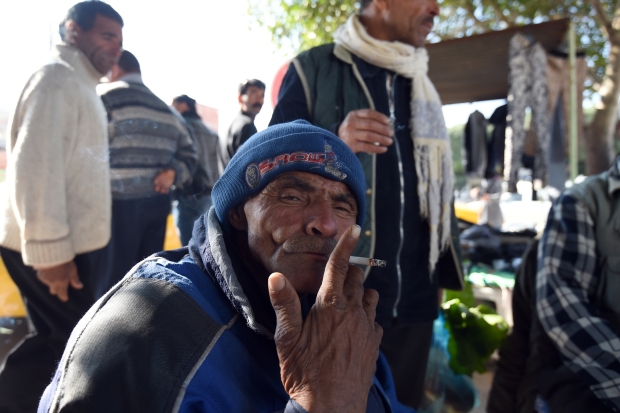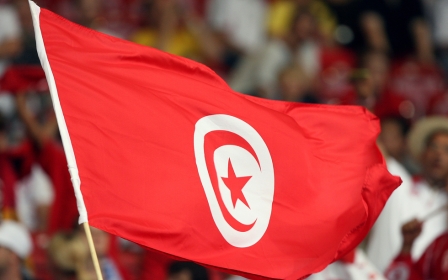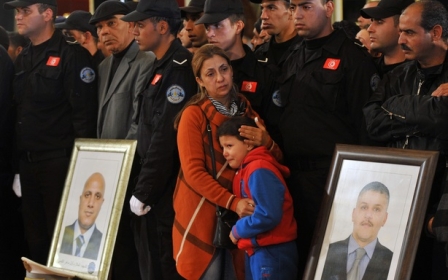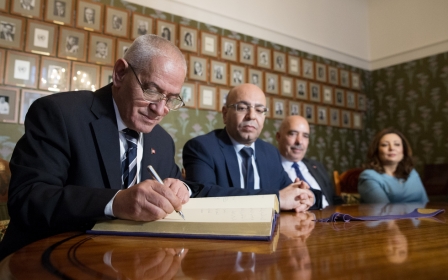Was it all for nothing? The Tunisian crucible of the Arab Spring
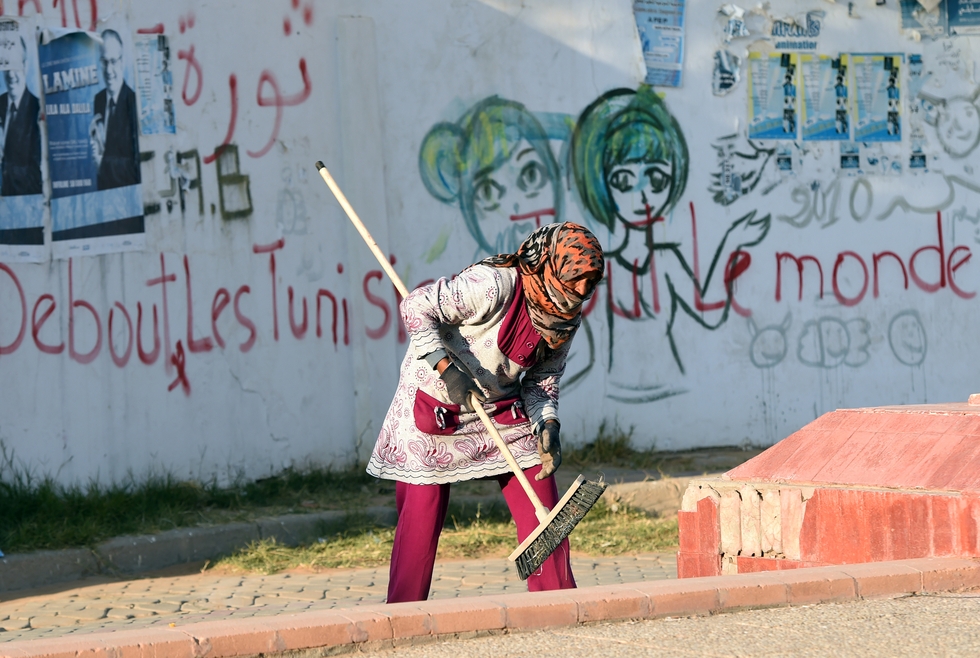
SIDI BOUZID, Tunisia - In downtown Sidi Bouzid, a few blocks from where Mohamed Bouazizi burned himself alive, a replica of his vegetable cart stands high above the street. An inscription reads: “Tunisia above everything.”
Two young boys stand nearby. When asked what they dream of becoming in life, the boys, both 12, respond respectively: “A police officer so I can carry a gun” and “a football player for Olympique Sidi Bouzid”.
Their answers are cliches for young boys, but symbolic nonetheless. Sidi Bouzid’s only source of dignity since the revolution has been its football team, and many of its residents see the country returning back to a one-party system that dominated for decades in the form of a police state.
This month, the Nobel Foundation presented Tunisia’s National Dialogue Quartet with the Nobel Peace Prize, five years after social unrest swept across the Arab world.
In honour of the fifth anniversary of Bouazizi’s death, which sparked the initial wave of protests in Sidi Bouzid, the Quartet and a representative of Tunisia’s prime minister will be present for a remembrance ceremony here on Thursday.
All of these elements paint a rosy picture for Tunisia, five years on from its revolution; yet, the reality for many residents of Sidi Bouzid is hardly pleasant. They chanted for dignity and freedom during the revolution and still have yet to see either.
Mohamed's cousin, Ali Bouazizi, said: “We are returning to the one-party system. We are losing our freedom ... We have no dignity in Tunisia, especially in the interior region.”
Young boys are forced to play football in streets instead of paying the four-dollar fee for a football match.
Ayda Daly, a journalist, told MEE: “Young men have three places to spend time. Their homes, cafes, and the internet.”
Tunisia’s government has struggled to identify the different factors that have led to at least 3,000 Tunisians going to Syria to fight in the civil war, mainly on the side of the Islamic State (IS) group. Both Daly and Alimi see these lack of public spaces as potential factors behind young men becoming radicalised.
Jamal Saghrouni, a 30-year-old unemployed graduate, said he believed that “poverty and corruption are the causes of terrorism. The government is responsible for all of those young men joining Daesh [IS].”
Saghrouni studied in high school with Mohamed Bouazizi, who worked and studied at the same time, before dropping out in hopes of earning money for his family.
Saghrouni recalls Bouazizi as a “funny guy who liked to laugh a lot. He loved the Club Africain football team.”
Bouazizi was his family’s main source of income, but having to bribe his way to work on the streets took away the point.
Adel Alimi says the situation is still the same: “They don’t confiscate all of a merchant’s vegetables anymore, but they always take samplings of different products, a few carrots, some potatoes,” as an informal tax.
For many residents of Sidi Bouzid, the one consolation has been their local football team. Olympique Sidi Bouzid has climbed from the third to the first division in the past five years. These residents have longed for dignity and only recently found it in their football team’s success.
The ideals of the revolution are certainly not dead. Freedom of speech is still largely a reality in Tunisia and the 2014 elections were fair and free.
However, according to many residents, their lives and issues are still the same. Just as it was forgotten before the revolution, Sidi Bouzid has been forgotten in the years following. Tunisia’s revolution started in a city in the interior, but those in the capital got most of the glory.
Middle East Eye propose une couverture et une analyse indépendantes et incomparables du Moyen-Orient, de l’Afrique du Nord et d’autres régions du monde. Pour en savoir plus sur la reprise de ce contenu et les frais qui s’appliquent, veuillez remplir ce formulaire [en anglais]. Pour en savoir plus sur MEE, cliquez ici [en anglais].


